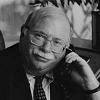DubiousDan wrote:I have been amiss in my duties. I have been aware of Henrick’s book for some time, but for one reason or another, I’ve put off buying it. The order goes in today. I will withhold judgment until I have read it. I was not aware that it changed the fundamental nature of Taoism. If I had known that, I would have ordered it sooner. What you have said goes against not only the Tao Teh Ching but Chuang T’zu and Lieh T’zu as well. I have read at least ten versions of the Tao Teh Ching, and in all cases verse 80 was substantially the same as in Bahm’s translation. However, until I have read Henrick’s, I will withhold judgment. My understanding was that Henrick’s version was based on an incomplete version of the Tao Teh Ching which may or may not have been the ancestral version. However, my understanding has been in error before. I shall read the book and get back with you. Actually, I am thankful to you for getting me to buy the book, I should have done it when I first heard about. No, come to think of it, I don’t think the paperback was out then. It seems that you and I have widely differing understanding of the meaning of the Tao Teh Ching. If Henrick’s book confirms my error, I shall be in your debt.
First of all, no, what I wrote is not going against Zhuang Zi or Lie Zi, because I have only been talking of the chapter 80 of the DaoDeJing, which, until further information, was not written by Zhuang Zi or Lie YuKou. So you again seem to read much more than what I said in my writing.
As for the DaoDeJing, I don't think your understanding of it is lacking as a whole, I am actually pleasantly surprised that you interpret it (as far as I can judge) as a political treatise rather than a metaphysical one, as is often done, and I totally agree with you on this interpretation, and Henricks version will certainly comfort you in this attitude.
With regard to a more detailed interpretation however, I think it is important to consider the time at which it was written. Both Lao Zi and Confucius (the latter more explicitely than the former) do relate to a lost ideal age which was the Zhou Dynasty, we however know that the chinese society under the Zhou rule was a very strict style of feudal system (usually acknowledged as FengJian system). Lao Zi recommendations do therefore apply to this kind of system and look at it as a lost age of peace to which we should return, since he's writing at a time of unending wars, which indeed is the worst of times (and I'll refrain to cite Dickens here, but it may be appropriate to acknowledge, that despite extreme violence, those great shift in human history somehow improve the living of the most oppressed, but more on that below).
So I don't think we have a "widely differing understanding of the meaning of the Tao Teh Ching", as you put it, I believe our understanding may actually be pretty close, but we may differ on the relevance of this understanding for our world, that is, on the way to interpret it in order to conceive conclusions applicable to our world.
DubiousDan wrote:Your naiveté is your inability to comprehend the nature of the world. I have been a little hasty in judging the extant of your knowledge in the past. However, knowledge and understanding are two different things. I don’t know your age, but I was born in 1935. I have held many beliefs in my lifetime. Experience has led me to reject beliefs and form new ones many times in my lifetime. My understanding goes to the fundamental nature of Human social orders, to civilization itself. The function of civilization, all civilizations, no matter what their ideology, is to take from the Harvester and give to the Elites. All ideologies are merely rationales for this. In the past, religion held the primary role. Today, more and more, it is economic ideology.
Once you understand this, then everything else becomes clearer.
When you understand that all civilized social orders operate for the benefit of the Elites, then you approach reality. Your theories have substance. As long as they do not recognize this fundamental reality, they are in error.
Yes, competent Elites benefit by managing their harvesters better. A good farmer cares for his livestock. However, the care that the steer receives is only there to increase the benefit from his slaughter. Yet, most domesticated animals prefer domestication, and once separated from it, will try to regain it. Civilized man is domesticated man.
Again, I really think you are misunderstanding my position, it might be my fault, english is not my mother tongue. Anyway, I certainly agree to say that domination relationship are at the heart of civilization, I may not go as far as to say that it is the "function" of civilization (because to make such a generalization, a few more discussion is needed), but historically, it certainly is the case that such relationships have been fundamental to social order and still are.
That being said, not all domination relationship are equivalent, I make a difference between a slave system, a feudal system, or an employee system (which would be the current system, if you have a better word, I am Ok with it). I also make a difference between a religious order and an order derived from an economic ideology, even though in some cases, they tend to behave alike. That the elites endeavor to devise and to operate the social system for their benefit is obvious, but the relationship between the Elites and the Harvesters (to borrow your terminology) is not constant in history, it evolves, there is a struggle going on, some Harvesters become Elites and conversely, some Elites become Harvesters, some orders are more or less oppressive, and we cannot ignore that today's individuals, despite all their alienations (to materialism, ideologies,...) are much more able to get emancipated than the people living in primal societies, whose lives were strictly regulated by taboos, and fears of the unknown. This is not to deny that our societies are still very much imbued with irrational fears, hierarchised by prejudices, and tightly controlled by the most powerful people, but these problems are today in the open, many of us have access to contradicting ideologies, there is no more one single voice emanating from a single shaman, we can debate these matters, we can act against domination at our own level, and beyond that.
To come back to the matter at hand however, to act efficiently against the structures of domination that clearly exist in our world, a pre-condition is to understand how these structures work, and how we may turn them against the Elites.
"'Progress" is cursed; the industrial civilization of the century is execrated,...and, at the same time, the poet revels in the special color and brilliancy this civilization has brought to human life" Jules Lemaitre(Paris, 1895)













 - By Rich
- By Rich - By Fasces
- By Fasces